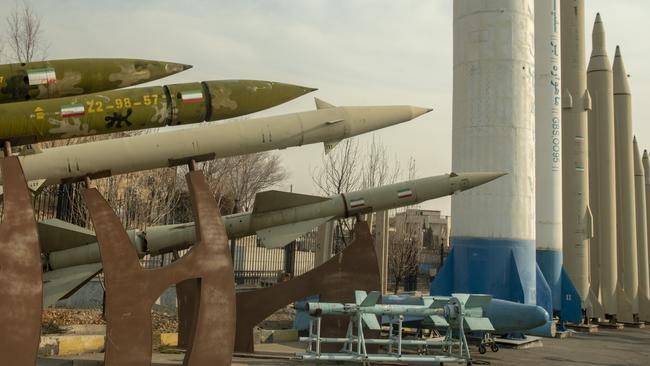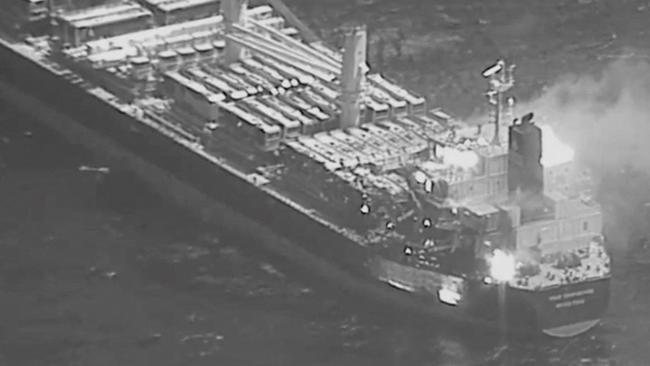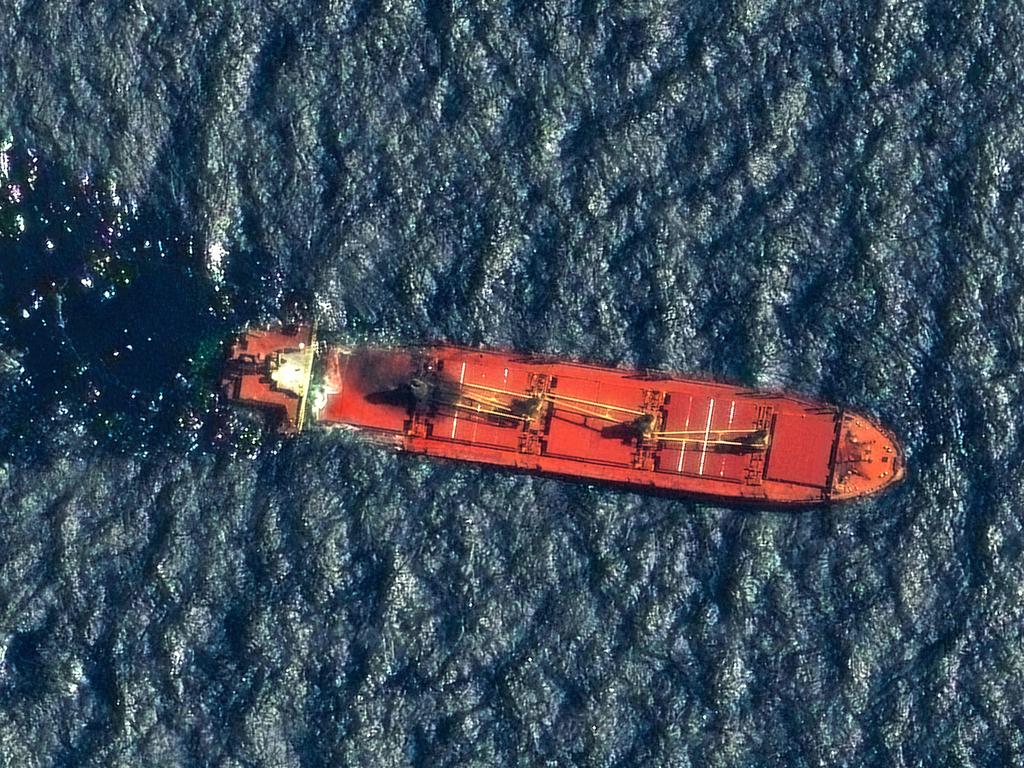Houthi expansion threats could impact Australian trade routes
Plans by Yemen rebel group, the Houthis, to use hypersonic weapons and extend their aggression into the Indian Ocean could significantly impact Australian trade routes.

Plans by Yemen rebel group, the Houthis, to use hypersonic weapons and extend their aggression into the Indian Ocean could significantly impact Australian trade routes and “echo supply chain issues experienced during Covid-19”.
Russia’s state-run RIA Novosti reported the claim about the intention to use hypersonics, citing an unnamed official but provided no further evidence.
However, the Iran-backed rebel group have been hinting at “surprises” they have planned for US and allied forces countering their attacks in the Red Sea.
“Our main battle is to prevent ships linked to the Israeli enemy from passing through not only the Arabian Sea, the Red Sea and The Gulf of Aden, but also the Indian Ocean towards The Cape of Good Hope. This is a major step and we have begun to implement our operations related to it,” Houthi leader Abdul Malik al-Houthi said.
The threat of extending aggressions into the Indian Ocean was met with alarm by security experts, with Strategic Analysis Australia director Michael Shoebridge declaring it was very much in the capacity of the rebel group to broaden their attacks.

While he was sceptical that the Houthis had access to hypersonic weapons, Mr Shoebridge said the Houthis didn’t “need them” in order to ramp up their operations further.
“The weapons they’ve already been using. cheap kamikaze drones, cruise missiles and Iranian supplied missiles, they can already expand attacks much further than they have with those,” he said.
“This tells us international maritime force has not been able to not only stop the Houthis but stop them from reaching further.
“The price of all goods carried by seaborne trade would go up and that’s got a whole global economy affect.”
Stevedore DP World said while the disruptions weren’t as significant as what was seen during the Suez Canal blockage or the pandemic, short term cost increases could flow to Australian consumers as a result of the conflict broadening into the Indian Ocean.

“The extension of conflict into the Indian Ocean could exacerbate operational challenges for shipping and logistics, similar to the current situation in the Red Sea. For example, delays in shipping due to rerouting can increase operational costs significantly,” a DP World spokesman said.
“However, companies have been exploring alternative solutions such as Sea-Air transport for high-priority goods, indicating a potential for adaptation. For Australia, which relies heavily on maritime trade, this could mean increased costs for imports and exports in the short term, but the existence of alternative routes and modes of transport may help mitigate these effects.
The spokesman said there could also be delays in imported products arriving on time.
“The conflict’s impact on shipping routes can lead to more inventory being in transit, echoing the supply chain issues experienced during the COVID-19 pandemic,” he said.
“This could particularly affect just-in-time supply chains, leading to delays in receiving goods.”

The concerns around Australia’s supply chain vulnerabilities follow Mr al-Houthi announcing in a televised address this month the rebel group would target ships heading for The Cape of Good Hope – the route hundreds of ships have been forced to take to avoid being attacked in the Red Sea.
Australian Strategic Policy Institute senior fellow Malcolm Davis said it would be “politically damaging” for Australia to deny a request to send in a navy frigate to the region for a second time and that an extension of Houthi aggression may call for such action.
“The broad impact (of doing nothing) would be higher cost of imports and an increase cost of living,” he said.
“And of course going into the budget, the treasurer is all about cost of living. If that gets worse as result of trade challenges, that will significantly worsen the economic outlook of the government.”





To join the conversation, please log in. Don't have an account? Register
Join the conversation, you are commenting as Logout